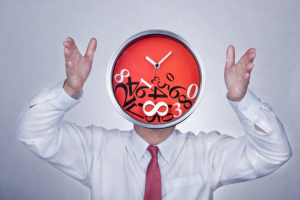
Don’t touch things twice
If you have a note to make a phone call, make the call. Don’t save emails to deal with later. Although there could be exceptions, right now is almost always the best time to act. Picking things up twice demands that you go through the same thought process twice, and that uses up your time.
Eat frogs
In other words, do the least appetizing things on your list first. Using up time dreading awful tasks instead of getting them done is a waste of time. The thing is still there waiting. Doing the tasks that are distasteful removes them from the list of things you have to think about. It frees you to tackle the things you like.
If possible, delegate “the urgent” to others
If that can’t be done, take care of them yourself right now. Don’t let the “tyranny of the urgent” get in the way of what really matters. Either delete or delegate them as quickly as possible so you can get on with what is more important. The first trick, of course, is to recognize those items that can be listed under “urgent.”
Say no
It’s one of the most powerful tools you can wield. Don’t equivocate with terms such as “I don’t think I can” or “I’m not certain.” You owe your first allegiance to your existing commitments. Researchers at the University of California in San Francisco determined that those who overload themselves experience more stress and depression. Turning down excessive requests can save your mood and your productivity.
Check emails on a schedule
Don’t allow it to become a constant interruption. Use your computer’s ability to prioritize messages and then set alert when messages come from your most important vendors or customers. Save the rest of your emails until the time you have set aside for them. It is possible to set up an autoresponder that will tell senders when you will be checking your emails again.
Avoid multitasking
Although it would appear to make good sense to do more than one thing at a time, it really can reduce your productivity. Researchers at Stanford found that trying to do more than one task takes a toll in attention and recall and wastes time as you switch from one task to another. The brain can focus on only one thing at a time, so concentrating on just one thing is more efficient.